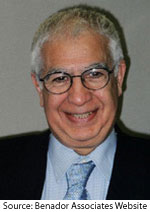Rest in Peace, Roger Garaudy! |
Then came 1956 and Nikita Khrushchev's exposure of those crimes. The PCF , visibly shocked by the revelations, refused to undertake a serious de-Stalinisation programme. Garaudy , along with several other Communist militants such as Louis Althuser and Michel Foucault started looking for ways out of the Stalinist maze. Althuser, who later killed his wife and went mad, produced what he termed " a reinterpretation of Marxism".
Foucault developed an anti-humanist discourse backed by a seductive vocabulary that appealed to many American academics. Foucault also became fascinated by the Khomeinist revolution in Iran and in his typical hyperbolic mode wrote of " the spiritual explosion" he had witnessed during his visits to a Tehran set on fire and pillaged by revolutionary mobs.
Garaudy , too, had started to look to religion for solace. However, unlike Foucault who admired Khomeinism, Garaudy thought he would find what he was looking for in Christianity. Rebaptised as a Protestant, Garaudy also forged a friendship with Abbe Pierre, the Catholic priest who founded the charity movement known as "Brothers of the Poor".
However, having broken with Marxism, Garaudy was unable to accept any new bondage for a long time. Soon, he distanced himself from Christianity and started looking to environmentalism, liberation theology (as developed by guerrillas in Latin America), and oriental philosophy as a new intellectual home.
Not satisfied by any of those experiences, Garaudy became fascinated by Ludmilla Tcherina, a French ballet dancer of Russian origin and produced a study of what he called " the mystic aspects of her body." A beauty in her early prime, Tcherina had briefly forged a liaison with one of the nephews of the Shah of Iran and been invited to the gala that marked the 25h centenary of the Persian Empire in Persepolis in 1971.
By 1980, however, Tcherina, having reconverted herself as an amateur sculptor, was too old to be worshipped as "a goddess of beauty", and Garaudy was, once again, without a spiritual home.
It was then that he read Muammar Kaddafi's "Green Book", and became fascinated with Libya and Islam. After a couple of visits to Tripoli and several meetings with the Libyan "Supreme Guide" in the desert, Garaudy decided to convert to Islam.
Garaudy wanted his conversion to be formalised and publicised. This is why he chose the Islamic centre in Geneva, an organ controlled by the Muslim Brotherhood, for the purpose. He also changed his name from Roger to Raja, the Arabic word for "hope".
The current biography is partly based on interviews with Garaudy, assisted by his lawyer, and conducted by the two authors. Garaudy asserts that the 9/11 attacks against New York and Washington were organized by the Bu administration. He also reasserts his belief that the genocide of Jews by the Nazis during the Second World War never happened and was "invented as a myth by Churchill, Eisenhower an De Gaulle" to justify the destruction and occupation of Germany.
This is a fascinating book not because Garaudy is anyone of any real importance. As philosopher, politician, and agitator, Garaudy's utter mediocrity is instantly apparent to anyone whop reads a few pages of his oeuvres. The book is worth reading because, by narrating one man's story, it shows how irrelevant political religious and moral issues have become to a certain intelligentsia that treats politics, religion and ethics as consumer goods.
In a sense, Garaudy, a tragic-comic figure, is typical of a certain breed of Western intellectuals who play with ideas and concepts just as play golf or poker on a weekend. Garaudy could be Communist one day, Christian another, Tcherniaist on a third say, and Muslim on a fourth, without his real life being affected in any important way. Stalinism may murder tens of millions of people while Garaudy was praising Stalin. Tchernia may be costing the Persian prince a bob or two, without Garaudy losing his admiration for that "divine shape." Religion could foment revolution, civil war and massacre, without any of that disturbing Garaudy's sleep in his posh Parisian apartment.
There was a time when Europe lived, and died, for and by its ideas. At such times, an intellectual's commitment to an idea had a real cost which could mean his very life. Today, others live for and die by ideas while Europe watches from its safe distance. Foucault could admire Khomeini because he knew that, as a Frenchman, he had a return ticket for Paris. He would not have to live under the ayatollah and did not risk being sent to the Evin prison or the firing squad by the Khomeinists.








 Amir Taheri is author of 11 books on the Middle East, Iran and Islam. He has been a syndicated columnist for American, British, and Middle Eastern publications since the 1980s. He has edited newspapers and magazines in his native Iran as well as Britain and France. In 2005, Taheri was named Senior Fellow at the National Committee on American Foreign Policy.
Amir Taheri is author of 11 books on the Middle East, Iran and Islam. He has been a syndicated columnist for American, British, and Middle Eastern publications since the 1980s. He has edited newspapers and magazines in his native Iran as well as Britain and France. In 2005, Taheri was named Senior Fellow at the National Committee on American Foreign Policy.
Post new comment